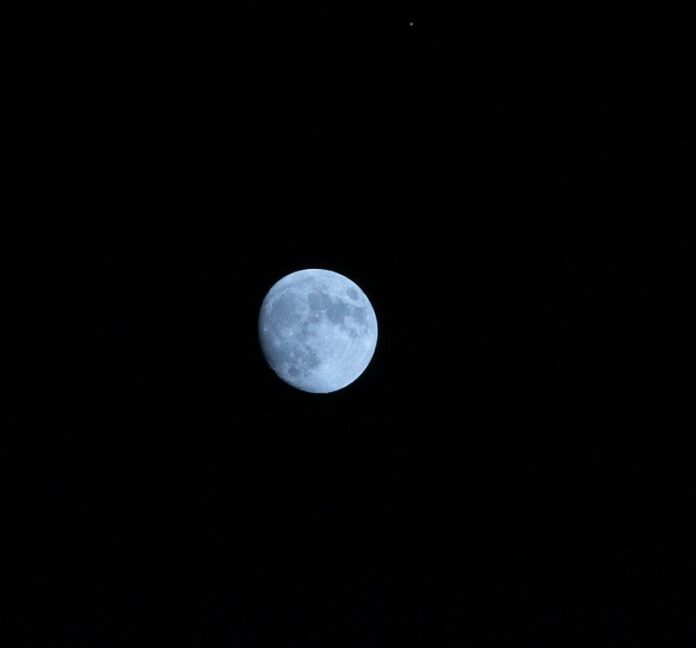“Once in a blue moon.” We’ve all probably all heard that expression. It refers to something that’s seldom seen or that rarely happens. Maybe someone visits you only once in a blue moon!
This August, we’ll have two full moons within the same calendar month. That doesn’t happen too often— only once every 33 months. The second full moon on August 30th is called a Blue Full Moon.
Meanwhile, the first full moon of August is called a Sturgeon Full Moon. It appears full on Tuesday, August 1st. Native Americans named it after a large bony fish of the Great Lakes Region, the largest fish in North America. Sturgeons are huge! They can measure 7 to 16 feet long and weigh 200 to 800 lbs. Amazingly, in Russia back in 1827, the largest sturgeon on record, a beluga female, weighed in at 3,463 lbs!
Not only does August have two full moons, but they’re both super moons. They both occur when the moon is at perigee, or the closest orbit to Earth. However, one super moon outshines the other. August 30th’s Blue Full Moon, at 221,942 miles away, is considered our brightest and closest moon in all of 2023!
Have you ever seen a white halo around the moon? It’s really an optical illusion that can happen if the conditions are just right. It’s caused by tiny ice crystals high in the Earth’s atmosphere, often made visible by wispy cirrus clouds. The ice crystals refract moonlight at a 22-degree angle, and create a stunning whitish halo. It’s always a perfect 22-degree radius encircling the moon. In folklore, a lunar halo was believed to be a sign of unsettled weather ahead. It was also thought to mean good luck or a message from the spirits.
Do you notice sometimes that the moon is orange or yellow? This usually happens when it’s low on the horizon. We’re viewing the moon through more of the Earth’s atmosphere near ground level compared to when it’s high in the sky. Thick airborne particles send certain colors of light to our eyes and scatter others. They scatter shorter wavelengths, such as blue, and keep longer wavelengths, such as the orange and red ones. That gives our moon an orange glow. It also gives us our fantastic sunset colors. Many things, such as pollution, dust, or smoke, can contribute to the amount of color we see reflected back.
We often think of the moon as this white or silver looking object in the sky. In reality the moon’s surface is more of an off-white or brown-gray color. Samples of moon rock brought back from space were actually dark gray.
Did you know there is such a thing as a Black Moon? It’s Blue Moon’s opposite. It’s a new moon term, fittingly named “black,” as the new moon’s phase is invisible to us. The Black Moon refers to an “extra” new moon. We expect 12 new moons per year. Typically, we have one new moon per month, or three new moons each season. Well, every 33 months, we have one more.
The third new moon out of four within a season is called a Black Moon. We had one on May 19. It came after the new moons on March 21 and April 20 and before one on June 18—all were in spring. We won’t see a Black Moon again until December 30, 2024.
Poor February, though, our shortest month, gets left out from time to time. Our moon cycles around every 29.5 days. Sadly, February has just 28 days and 29 during Leap Year. It won’t have a new moon at all in 2033. And it won’t have a full moon at all in 2037. And February will never, ever be treated to a Blue Full Moon!

